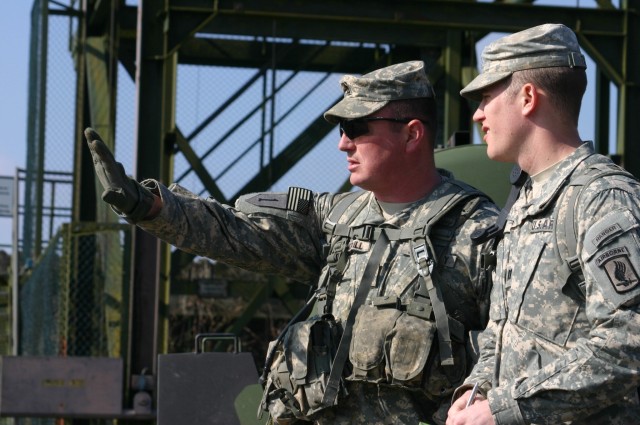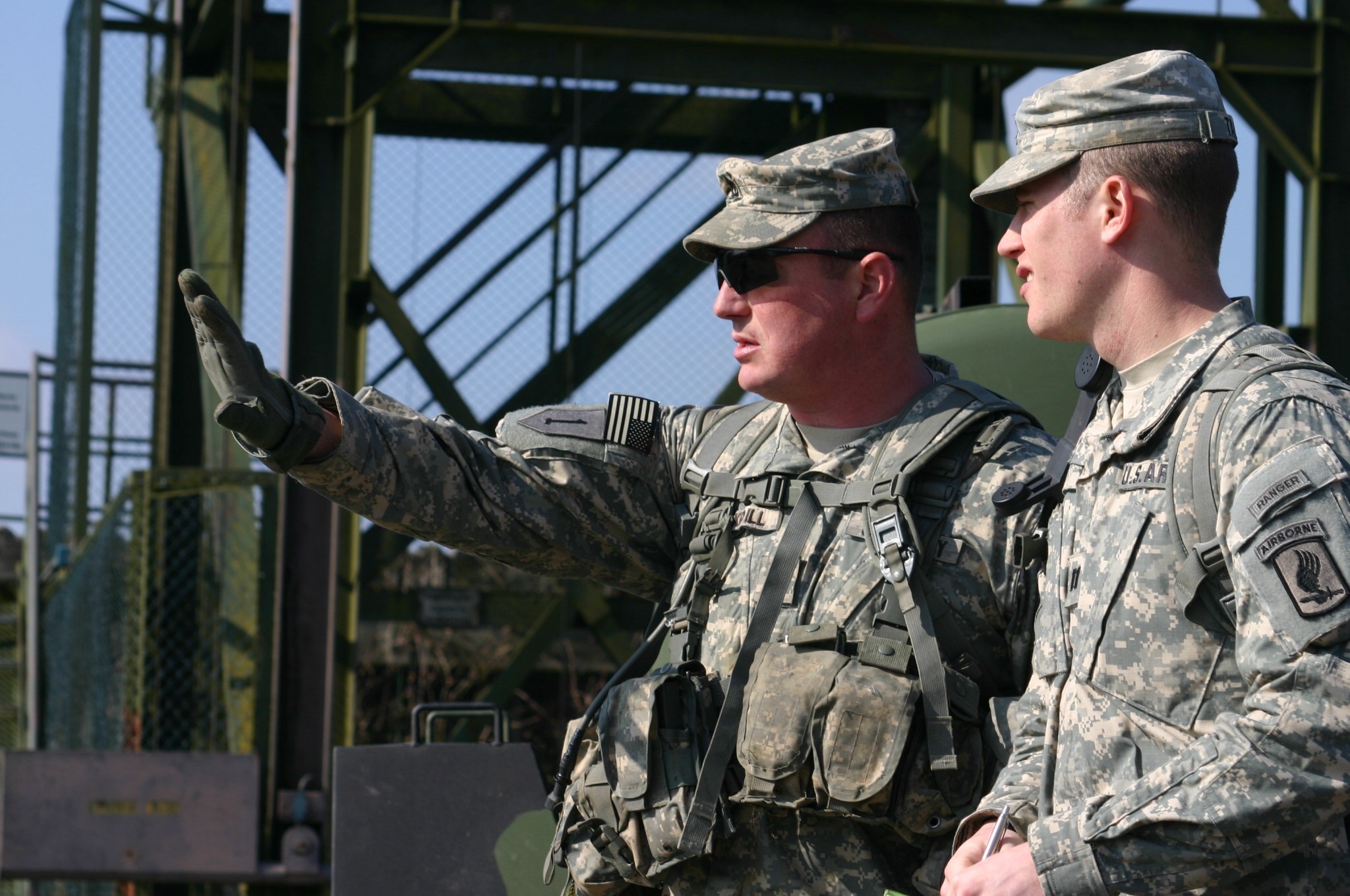SCHWEINFURT, Germany -- Recalling the "light green, crystal clear" lake at the foot of the Bavarian Alps rushing toward him, 1st Sgt. Jake Stockdill truly enjoyed his latest jump - a water landing.
"It was absolutely fantabulous. It was off the back ramp of a CH53, so you walk off," Stockdill said. "Aw, man, it was awesome."
Admitting he should probably know the exact number of jumps he has made in his career - somewhere between 19 and 21 - Stockdill, with Anvil Troop, 1st Squadron, 91st Cavalry Regiment (Airborne), seems to be enjoying jumping from aircraft as much as training his fellow Soldiers - and superiors.
"Back in the day, when I was a young cav guy growing up, first sergeant had 140 dudes in the troop. Or more. He was that one guy," Stockdill said. "He was the man."
Still, it was his platoon sergeant at the time, now a sergeant major, who taught him at least two important lessons that guide him to this day.
"I just remember him always telling me, our job as NCOs is to train those young Soldiers and train that lieutenant. Mentor that lieutenant," said Stockdill, who relishes the opportunity to help young officers develop into future commanders.
"I'm my commander's partner. He's training platoon leaders to be future commanders. Well, that's part of my job too," he said. "If I want to take care of Soldiers, I need to take care of those lieutenants."
The second lesson: send your subordinates home in time to enjoy time with their families.
"You've got to get home and take care of your family. Because if you get home and take care of your family, and that part's good, this part in the office is going to be easy. Because you're going to be focused," he said, noting that anyone whom he outranks goes home at the same time he does.
Stockdill considers himself fortunate to have the broad experience of having been deployed to both Iraq and Afghanistan, but, understanding the toll deployments can take on families, demands his Soldiers devote time to their families.
"Now, there's going to be exceptions to that all the time. Especially when we get close to the deployment, close to packing out. Yeah, I'm going to have days when I'm not going to leave the office until 2100. I know that. But if I make up the time now, the Soldiers will be focused when that time comes," he said.
Younger noncommissioned officers are quick to point to Stockdill as an example, their model NCO.
"The thing I respected most about 1st Sgt. Stockdill is that he really cared about us, and you could see that ," said Sgt. Donnie Bass, who deployed with Stockdill.
"He was like our big shield, like, stop, boom, no way" Bass said with a hands-up gesture, during a training exercise in March.
"He taught me so much, and he actually took the time out of his day to get with us and teach us," Bass said.
As his unit prepares again to deploy, Stockdill stresses to his Soldiers - and young officers - that they focus on basics of their skill that can be applied to any combat theater.
"Our common ground has become wider and wider and wider," he said, explaining the challenges that such a heavily deployed and experienced force brings from Iraq and Afghanistan.
"This fight's going to end. If they don't know how to establish an OP, an observation post, to set and establish it and know what equipment to take, because they've been so focused on kicking in a door, when that time comes for them to be a staff sergeant, what good are they'" he asked.
"If they don't understand the principles of reconnaissance and the fundamentals of security, when this fight is over, they're not going to be any good," he said.
In addition to having the experience of fighting in both Iraq and Afghanistan, Stockdill has been a Ranger "leg," and a member of a mechanized Cavalry Squadron.
All that before jumping into lakes in the heart of Bavaria.


Social Sharing